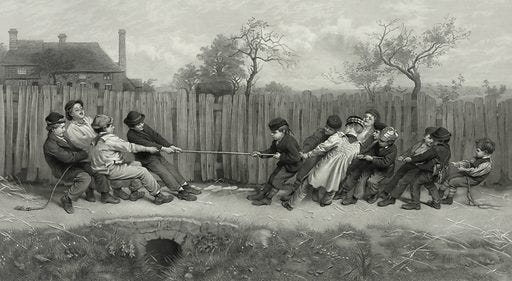Why Nerds Don't Smoke
Part 2: How rational thinking helps explain nerds and nerdiness
NOTE: After publishing this series, I stopped using “nerdiness” to describe this vibe. I now refer to it as the Analyst Vibe. The research and analysis still apply.
Smoking cigarettes was a symbol of coolness in the 20th century. Virtually any picture of a “cool” person from that era includes one.
Until the 1960s, the dangers of cigarettes were not well understood, but that didn’t matter. Cigarettes were an aesthetic choice for many, an expression of their hipness and expertise in playing the social game. Even if they were smelly, dirty, and unhealthy, they looked cool, so people continued to smoke.
If you strip away the social and cultural signals of cigarette smoking, you’re left with a habit that is not rational. It costs money and has little intrinsic or material value. Yet, it remains a powerful part of our culture.
What’s going on? Why would some people behave so irrationally?
One Message, Two Reactions
When the Surgeon General deemed smoking a health risk in 1964, it sent a clear message that smoking causes cancer and other problems. For some, this was a reason to stop smoking or to never start. This is a perfectly rational perspective.
To others, smoking was not a matter of rational thought. Even outside of nicotine addiction, they chose to keep smoking because it played a valuable role in their identity. It created a sense of belonging and showed that they were rebels who didn’t care about the Surgeon General or anyone else. Smoking was a way to express coolness.
These two approaches highlight an enduring quality of nerdiness: a preference for rational thinking. If you’re not interested or tuned into the social game, it’s obvious that smoking is harmful and offers no value.
As we’ll see, this difference takes many forms and helps explain how people interpret information differently.
This is Not New
Once you start to notice this difference, you’ll see it everywhere. We live in a world of rational and irrational perspectives.
In his book AMERICAN NERD, Ben Nugent highlights a scene from HOWARDS END, a book by E.M. Forster published in 1910. It describes two sisters who are experiencing different versions of the same performance:
During a famous scene of Beethoven's Fifth Symphony, Tibby is fixated on the mechanics of the composition … and afterward asks, "Surely you haven't forgotten the drum steadily beating on the low C?" Meanwhile, Tibby's sister Helen is awash in images of shipwrecks and goblins.
In his book AWKWARD, Ty Tashiro describes being in a music appreciation class with a friend in college:
…he frequently offered mathematical observations about the music. His comments were accurate and insightful, but incited eye rolls from other students.
Think about how you listen to music. Are you focused more on the rational mechanics or the irrational feelings? Most people are somewhere in the middle. My point is that in something as common as music, two people can have fundamentally different experiences.
Why Are They Like That?
If you prefer rational thinking, your fellow humans may seem like walking contradictions. A friend might use data and rationality to buy a practical car and then spend money on flashy, expensive shoes they’ll rarely wear. Can’t they see the difference?
This contradiction highlights how we navigate the world in different ways. For some, rationality is the guide. Comfortable shoes and functional clothing may not earn adulation, but they are rational and practical.
For others, rationality is one input of many. Expensive, uncomfortable shoes are not as rational but serve a social purpose that helps them play the game. They wear them to express themselves, make a statement, or be noticed.
Wherever you are on this scale, it’s easy to wonder about others and ask: Why are they like that?
A Tug-of-War
Rational thinking, of course, is productive and useful. It’s required for fields like math, engineering, and programming, which involve problem-solving, analysis, and precision. From this perspective, intuition, cultural signals, and social grace can feel like details or distractions.
Nugent writes that:
Nerds sometimes remind people of machines by being passionate about some technically sophisticated activity that doesn't revolve around emotional confrontation, physical confrontation, sex, food, or beauty.
Systems like math and computer programming provide a sense of order in a world that often feels irrational.
It’s true. The world is an irrational place. If everyone were more orderly and rational, the thinking goes, we could solve our problems. This leads to the question: at what cost? Beauty, culture, emotion, and style are necessary, too. If you squint your eyes, you can see that this difference is much bigger than it seems.
I imagine a generational tug-of-war between rational thinkers and less-rational thinkers. One side has data and evidence, while the other has emotion and identity. This translates to well-known dichotomies, like:
Function vs. form
Enlightenment vs. Romanticism
Science vs. art
We need both, and over time, we’ve seen these sides compete for relevance and attention. We’ll return to this idea later.
A Contrast
This focus on rational thinking isn’t new to nerds. Nugent makes this point:
“The pathos of being a nerd is to feel that because you are comfortable with rational thought, you are cut off from the experience of spontaneous feelings, of romance, of nonrational connection to other people.“
Nugent continues: “A nerd is so often self-loathing because he accepts the thinking/feeling rift, and he knows and cares that other people accept it, too. To be a nerd is often to live with a nagging feeling of one's own incurable heartlessness.”
Nugent makes a key point: a preference for logic and rationality over intuition and popular culture is a defining quality of nerdiness.
Thankfully, we live in a world that is in need of more rational thinkers. Technical and scientific fields depend on people dedicated to rationality, data, and evidence, which are essential skills. In this context, non-rational thinking serves less of a purpose.
Lest you think this is a negative quality, remember that many of the richest people in the world, like Mark Zuckerberg, are self-professed nerds. This is not a deficit. It is one of many ways to interpret the world around us.
Coming Soon:
In the next issue, we’ll continue to build an understanding of nerdiness and look at what’s behind the nerdy attraction to gaming.
Read Part 1 of this Series:
Or, read a summary of The Analyst Vibe (formerly nerdiness).






Maybe the Nerd cannot relate to the MARLBORO MAN image!